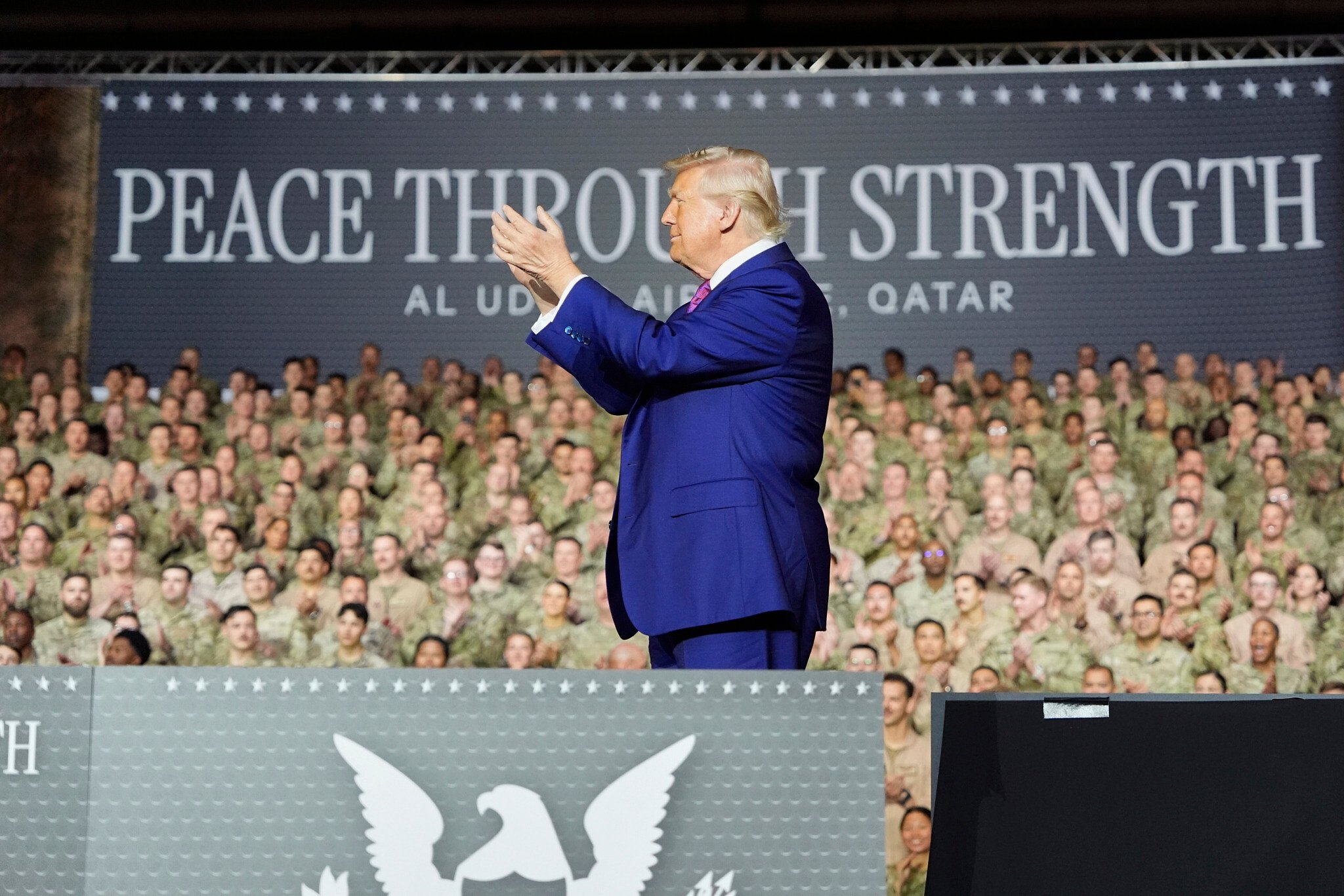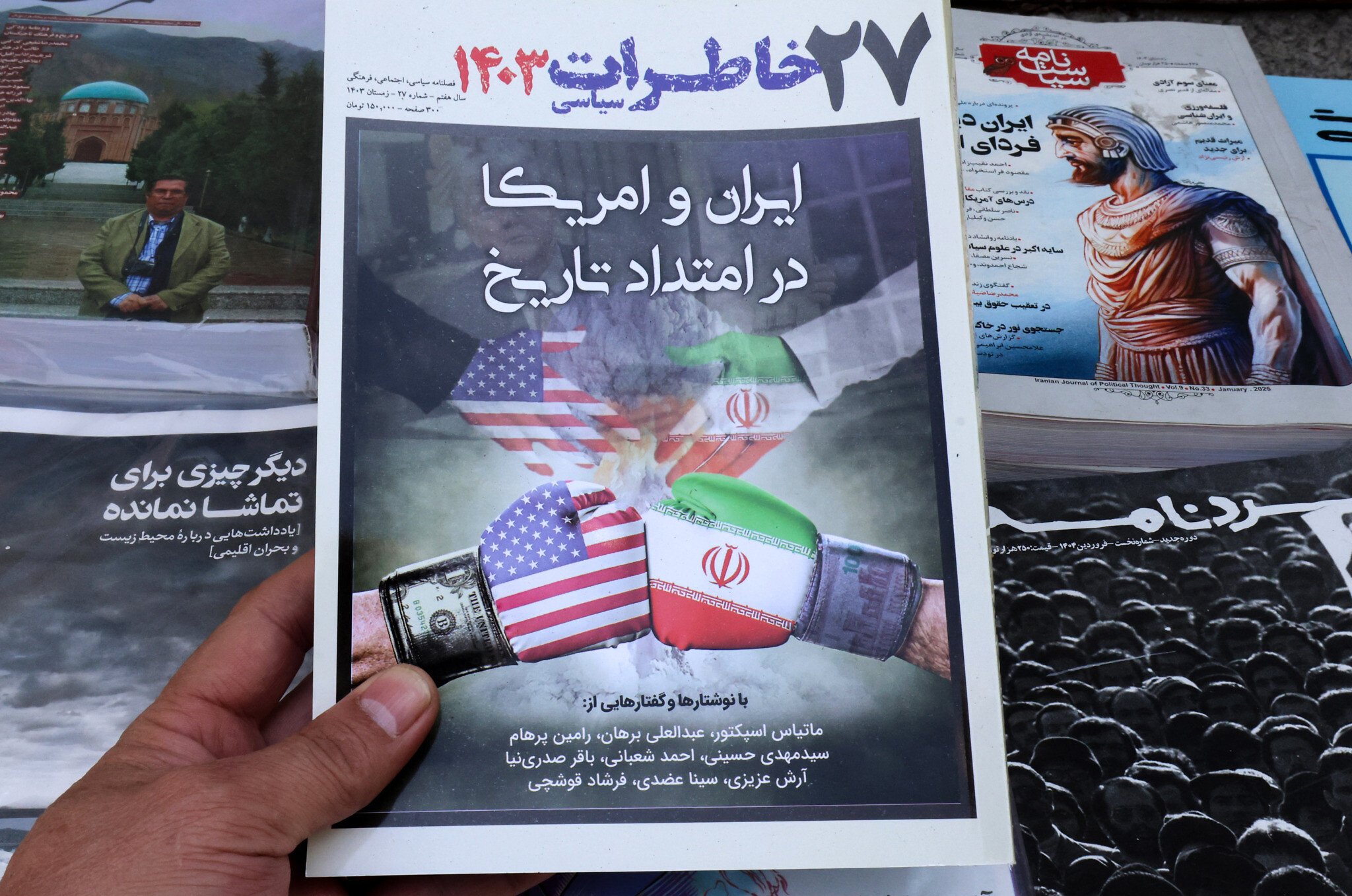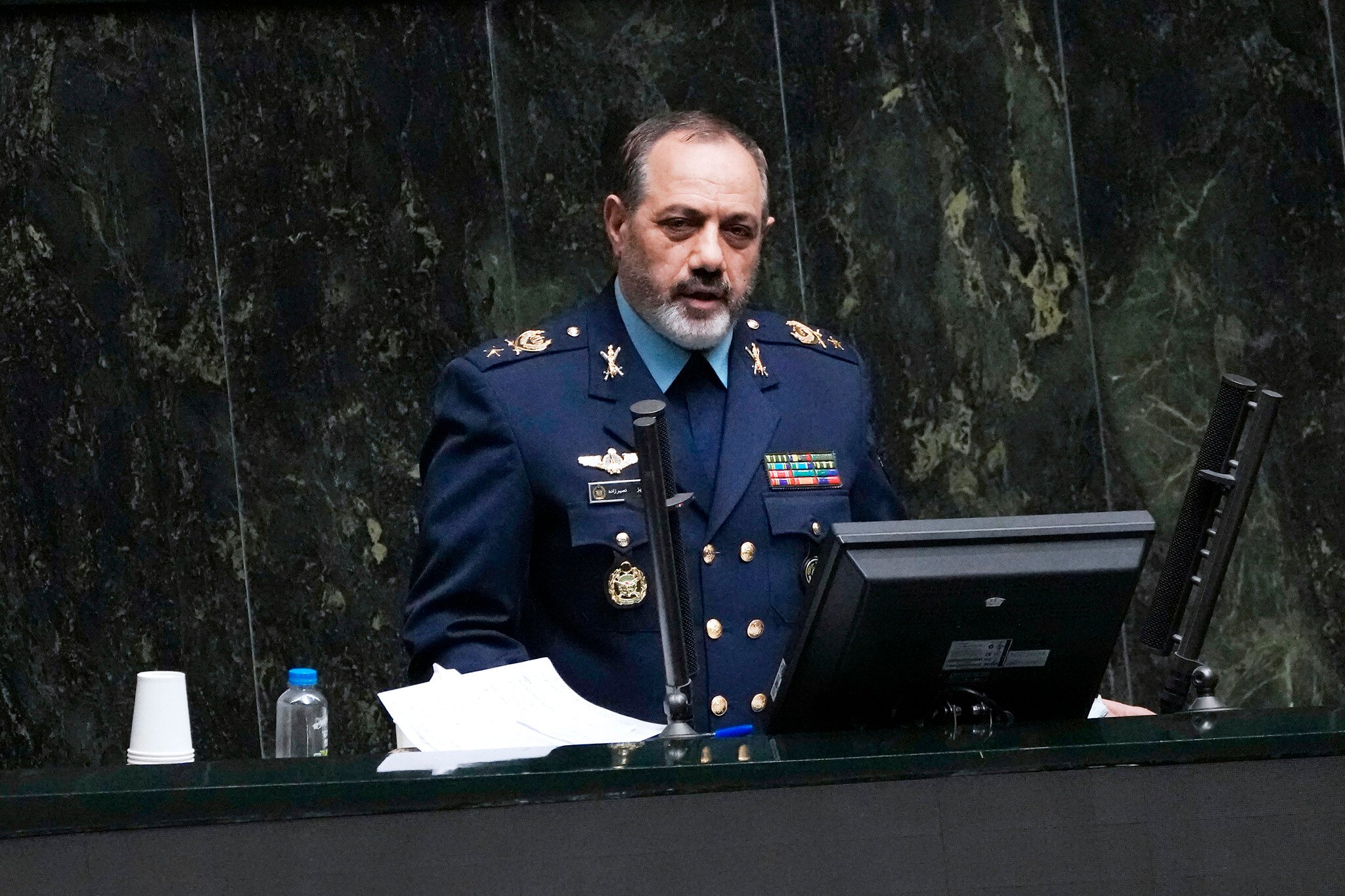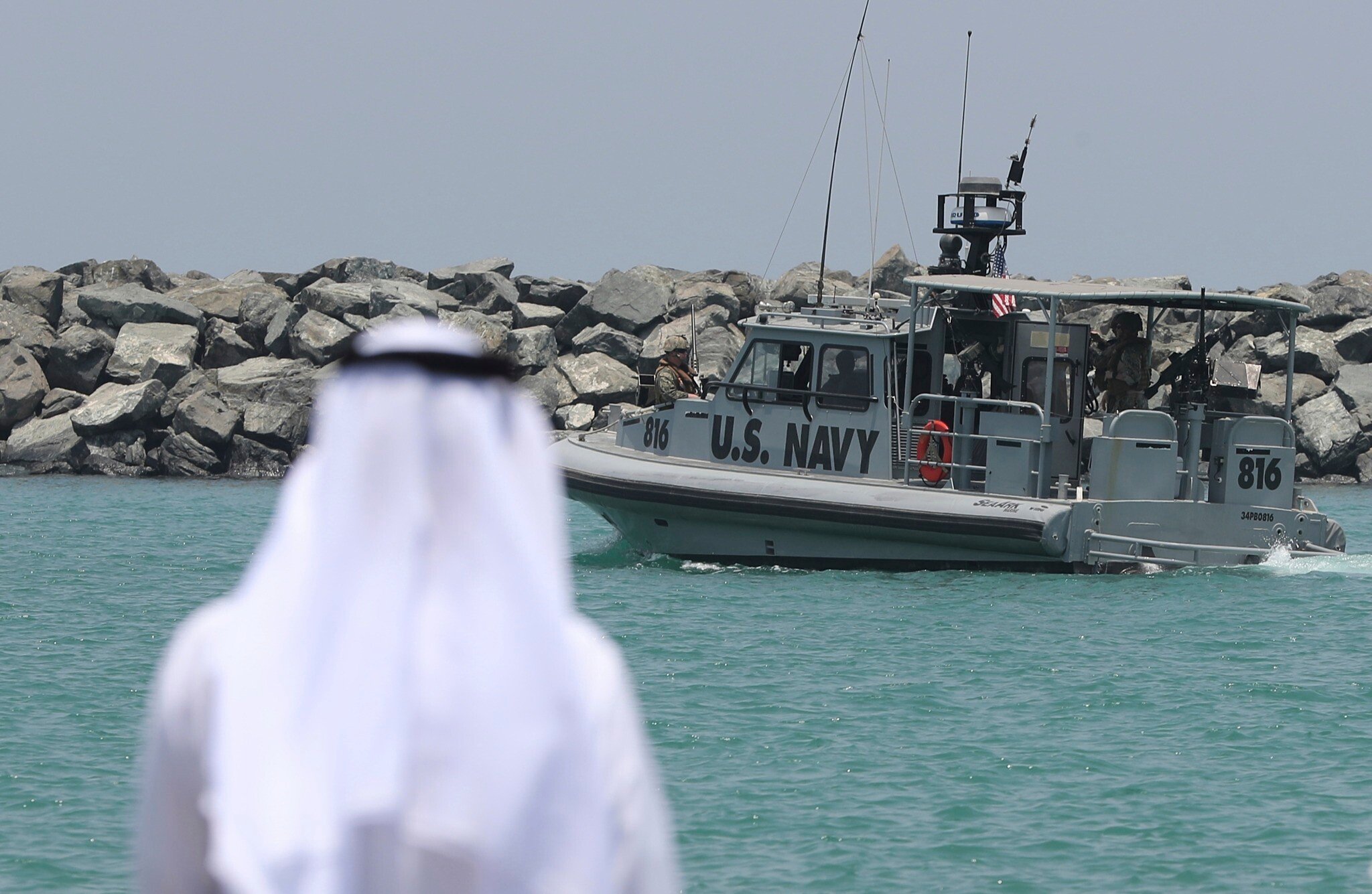



The United States is drawing down the presence of people who are not deemed essential to operations in the Middle East due to the potential for regional unrest, the US State Department and military said Wednesday as tensions with neighboring Iran rose amid deteriorating nuclear talks.
“President Trump is committed to keeping Americans safe, both at home and abroad. In keeping with that commitment, we are constantly assessing the appropriate personnel posture at all our embassies. Based on our latest analysis, we decided to reduce the footprint of our Mission in Iraq,” a State Department official told The Times of Israel.
Earlier Wednesday, two US officials told The Associated Press that the State Department was preparing to order the departure of all nonessential personnel from the US Embassy in Baghdad due to the potential for regional unrest.
The department also authorized the departure of nonessential personnel and family members from Bahrain and Kuwait, giving them an option on whether to leave the country.
In addition, US Defense Secretary Pete Hegseth has authorized the voluntary departure of military dependents from locations across the Middle East, a US official said. Another US official said that it was mostly relevant to family members located in Bahrain — where the bulk of them are based.
Tensions in the region have been rising in recent days as talks between the US and Iran over its rapidly advancing nuclear program appear to have hit an impasse.

In light of mounting friction, Michael Kurilla, who directs American forces in the Middle East as the head of US Central Command, postponed his testimony before US lawmakers he was set to give on Thursday, according to two officials.
Kurilla was set to testify in front of the Senate Armed Services Committee. US Central Command did not immediately respond to a request for comment.
The talks seek to limit Iran’s nuclear program in exchange for the lifting of some of the crushing economic sanctions that the US has imposed on the Islamic Republic. Iran insists its nuclear program is peaceful.
The next round of talks — the sixth — had been tentatively scheduled for this weekend in Oman, according to two US officials, who spoke on condition of anonymity to discuss diplomatic matters. However, those officials said Wednesday that it looked increasingly unlikely that the talks would happen.
US President Donald Trump, who has previously threatened to use military force against Iran if negotiations failed, gave a less-than-optimistic view about reaching a deal with Iran, telling the New York Post’s “Pod Force One” podcast that he was “getting more and more less confident about” a deal.

“They seem to be delaying, and I think that’s a shame. I’m less confident now than I would have been a couple of months ago. Something happened to them,” he said in the interview, which was recorded on Monday.
Iran’s mission to the UN posted on social media that “threats of overwhelming force won’t change the facts.”
“Iran is not seeking a nuclear weapon, and US militarism only fuels instability,” the Iranian mission wrote.
Iranian Defense Minister Gen. Aziz Nasirzadeh told journalists Wednesday that he hoped talks with the US would yield results, though Tehran stood ready to respond with strikes on American bases in the region.
“If conflict is imposed on us, the opponent’s casualties will certainly be more than ours, and in that case, America must leave the region, because all its bases are within our reach,” he said. “We have access to them, and we will target all of them in the host countries without hesitation.”

In a separate sign of mounting tensions, a statement from the United Kingdom Maritime Trade Operations center, a Mideast-based effort overseen by the British navy, issued a warning to ships Wednesday in the region that it “has been made aware of increased tensions within the region which could lead to an escalation of military activity having a direct impact on mariners.”
It urged caution in the Persian Gulf, the Gulf of Oman and the Strait of Hormuz. It did not name Iran, though those waterways have seen Iranian ship seizures and attacks in the past.
Much of the world’s oil and key commodities, including grains, pass through the region’s busy sea lanes.

In a separate statement Wednesday, British maritime security company Ambrey said that “Israel-affiliated merchant shipping is assessed to be at heightened risk of reciprocal military action.”
“Substantial US support to Israeli offensive action would raise the risk to US shipping and vessels carrying US cargo,” the statement read.
Shipping industry and insurance sources said there was growing concern over a spillover from any action by Israel and its arch foe Iran, especially in waters around the Gulf and nearby waters.
Last year, Iran fired hundreds of missiles and drones at Israel, and Israel launched airstrikes on targets inside Iran.
“Any attack will have a certain potential to escalate and impact shipping as well as implicate military forces of other countries operating in the area, including the United States,” said Jakob Larsen, chief safety and security officer with the BIMCO shipping association.
“A full-blown armed conflict between Israel/U.S. and Iran would most certainly effectively close the Straits of Hormuz at least for a period of time and drive up oil prices,” he continued.
Meanwhile, the Board of Governors at the International Atomic Energy Agency was potentially set to vote on a measure to censure Iran. That could set in motion an effort to snap back United Nations sanctions on Iran via a measure in Tehran’s 2015 nuclear deal with world powers that’s still active until October. Trump withdrew from that deal in his first term.
